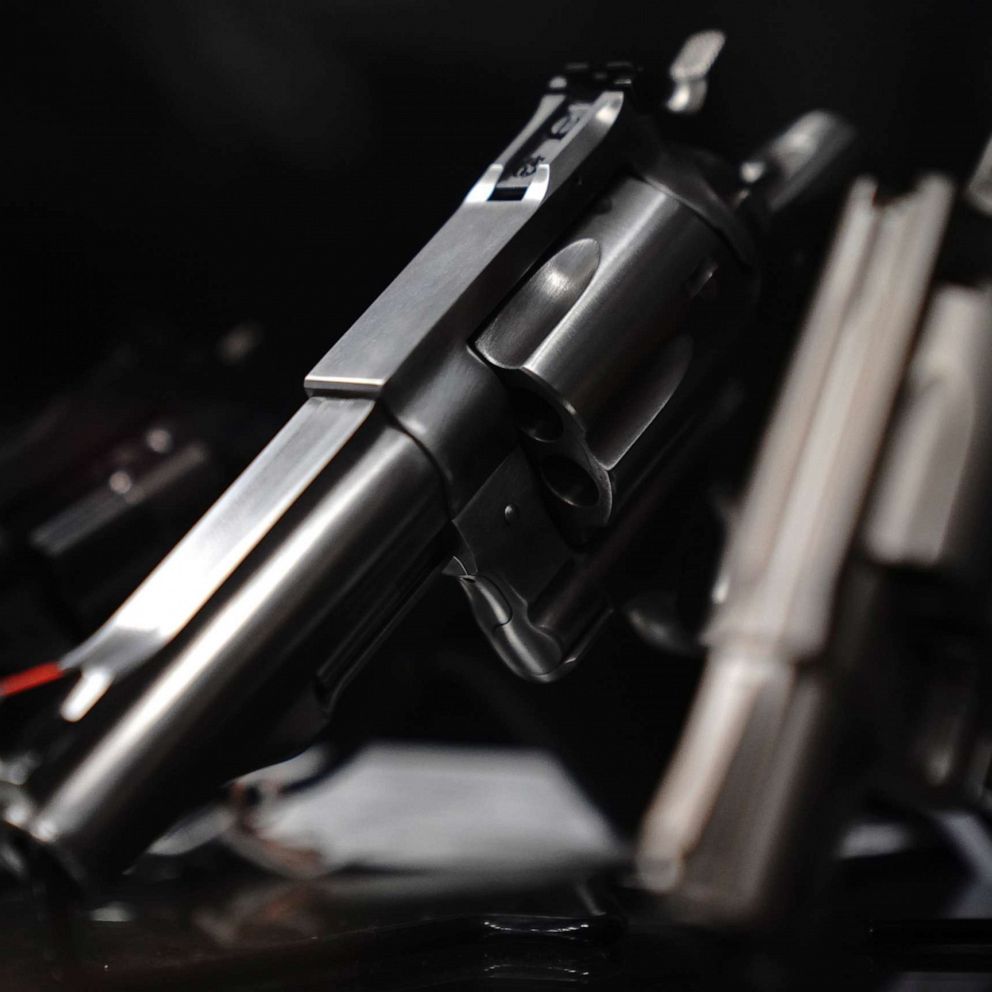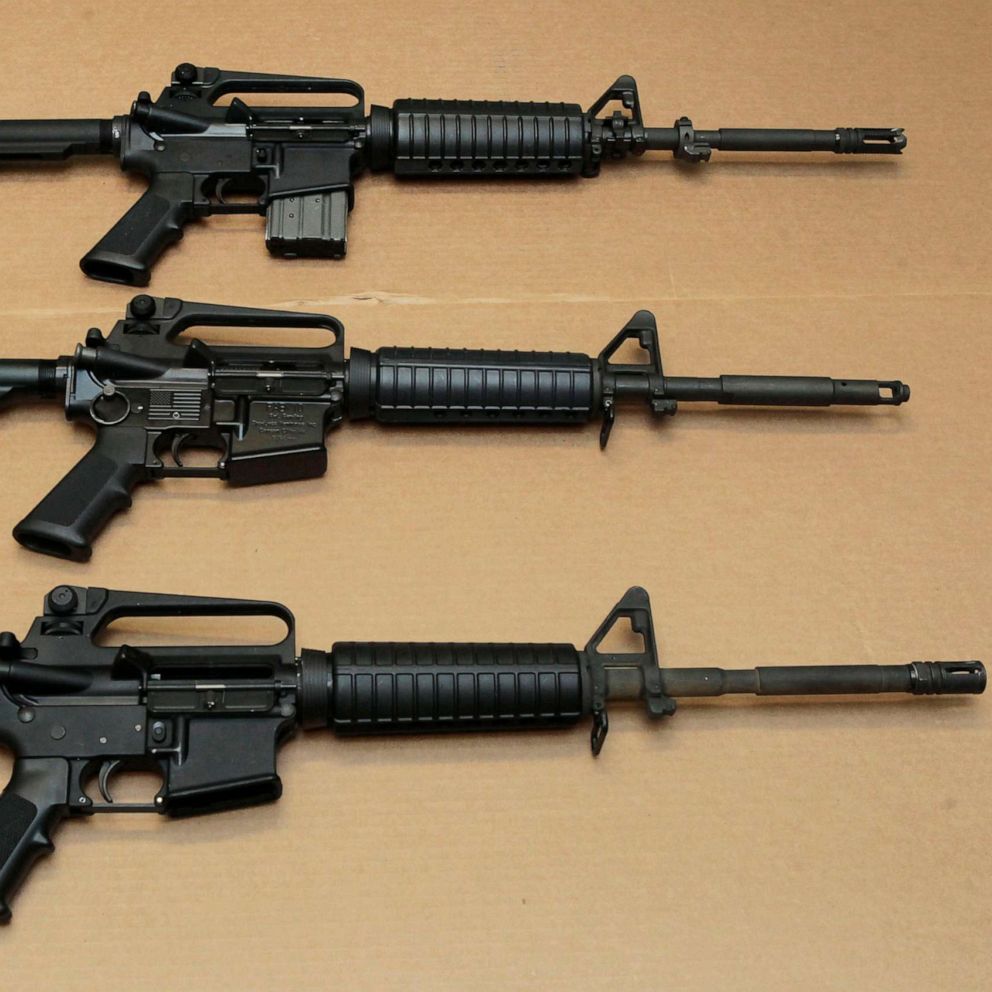Accidental shootings by children climbed during COVID. Why is that changing now?
From January to mid-May, there were 122 accidental shootings by children.
Draquine Floyd Jr. was visiting a family member in April when the 7-year-old found a loaded handgun. While handling it, the gun accidentally discharged, killing him, according to police.
Floyd's grandmother, Dorothy Parks, said what her family is going through doesn't seem real.
"I will never ever see his little smile again. We will never see you again, not in person. I will never hear his little voice say 'grandma' again," Parks told Myrtle Beach, South Carolina, ABC affiliate WPDE after the shooting.
"Although it's an accident, you have to be careful. I'm a gun owner myself, but there is no way on God's green earth that I would want to put anyone's family through this. You all have got to secure your weapons. Have them, but secure them. Protect our babies. It's too many of our children dying here," Parks said.
Floyd's great uncle has been charged with failure to secure a firearm to protect a minor, according to WPDE.
Floyd is one of 54 children who has died in an accidental shooting by a child this year in the U.S., according to data from nonprofit Everytown for Gun Safety.

There have been at least 122 unintentional shootings by children across the country from January to mid-May, according data from Everytown. They have resulted in 54 deaths and 77 injuries. The numbers account both for children who accidentally shoot themselves, or others.
The number of such shootings has decreased each of the past three years. There were 131 such shootings from January to mid-May in 2022. There were 141 in 2021, according to Everytown data.
One in three of these accidents is caused by children ages 1 to 5, according to the data.

The highest number of accidental shootings by children -- since the group started tracking these incidents in 2015 -- happened in 2021.
"But 2020 was also very high. When you start doing an analysis of the data, you can see that these incidents are much more likely to happen on weekends, over the summer, times when kids are home," Sarah Burd-Sharps, the senior director of research at Everytown for Gun Safety, told ABC News in an interview.
"That helps you understand a little bit about what's going on, which is kids getting access to loaded guns that are not securely stored," Burd-Sharps said.
And even though the number has been trending down, the numbers are not yet at the lows of 2018 and 2019.
Burd-Sharps said the drop in the number of these incidents in the past year and a half is likely due to children spending more time at school and less time at home with the COVID-19 pandemic easing.

How safe storage laws affect child shootings
Many states are introducing legislation aimed at decreasing accidental shootings, such as a safe storage law passed in Michigan in April.
"Several states have recently passed secure-storage laws, which research shows make a huge difference in saving children's lives," Burd-Sharps said. "And the hope is that as these laws are passed, these unintentional shootings by children will continue to go down."
Child access prevention and safe storage laws are "incredibly effective" in curbing gun deaths in children and teens, according to the Giffords Law Center, an anti-gun violence nonprofit started by former Rep. Gabby Giffords after she was shot in January 2011.
"The general idea is that it is the legal responsibility of gun owners to secure their gun so that they're inaccessible to underage youth," Daniel Webster, the director of the Gun Policy and Research Center at Johns Hopkins University, told ABC News.
Child access prevention laws impose a penalty on gun owners who fail to secure an unattended firearm and leave it accessible to an unsupervised minor. In Michigan, for example, gun owners could face misdemeanor charges punishable by up to 93 days in prison, a fine of up to $500 or both, if they fail to safety secure their firearm and a minor obtains it and possesses it in a public place or possesses it in the presence of another person in a careless, reckless or threatening manner, according to the new law.
"These laws lead to fewer unintentional shootings of children. They lead to fewer teen suicides, and they also lead to fewer homicides committed by people under age 18," Webster said.
"The laws are structured to keep guns from people who legally aren't supposed to have them. Usually that has been in the context of underage youth, but some laws apply more broadly to keep guns from someone who the law says is too dangerous to have them," Webster said.
Webster said it is not common for parents to be charged in incidents of children using an unsecured gun and the laws are used "sparingly."
Safe storage laws require unattended firearms to be stored in a certain way, according to the Giffords Law Center.
"States with no laws that hold gun owners accountable have double to triple the rate of these unintentional shootings," Burd-Sharps said.
Safe storage laws are generally very popular. A 2019 survey from the American Public Media Research Lab found 78% of Americans either strongly support or somewhat support mandating locked gun storage.
How gun users can protect children
To keep accidental shootings from happening at home, gun owners should store guns securely, unloaded and locked, separate from ammunition, Burd-Sharps said. Keys or passcodes to the locks should also be kept separately.
Last week, a child was killed by another child in Illinois after accessing a gun that the gun owner said was on a high shelf, according to police.
"We recommend that they store their guns unloaded and locked up in gun safes. Gun safes these days you can actually get them small, very affordable ones," Webster said.
Before sending their children to other homes, parents should consider asking if there is a gun in that home and if it is securely stored, Burd-Sharps said.
"We all can play a role. Doctors can ask that question and help families keep their children safe, law enforcement can help to publicize the importance of secure storage, gun shops are also actively involved in this in some places, making sure that when they sell guns, they talk about secure storage [and] they have signs up about it," Burd-Sharps said.







